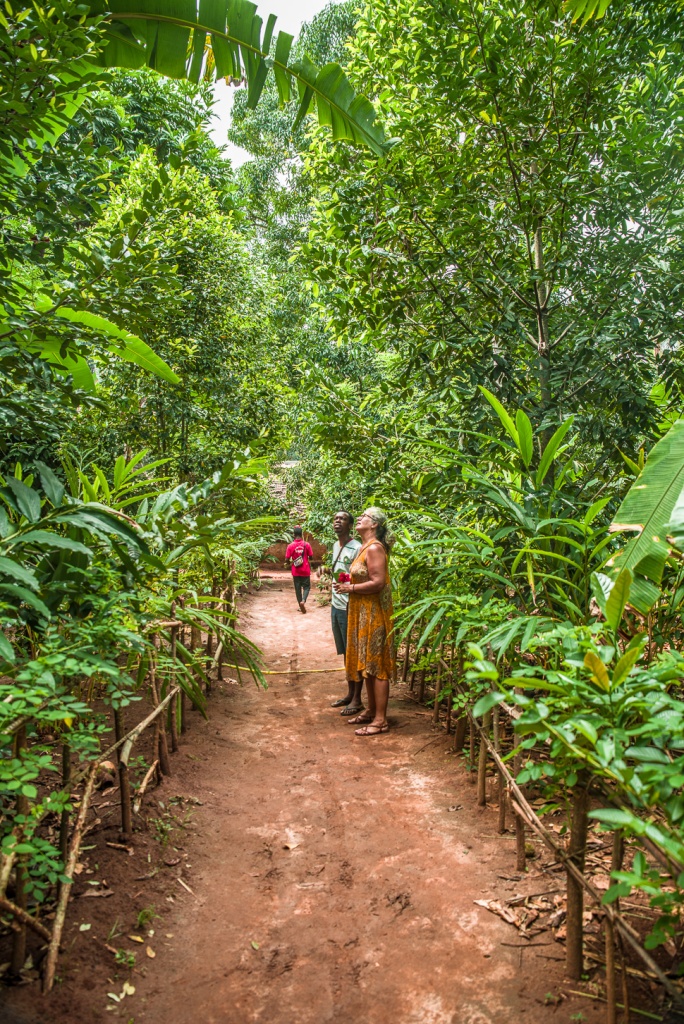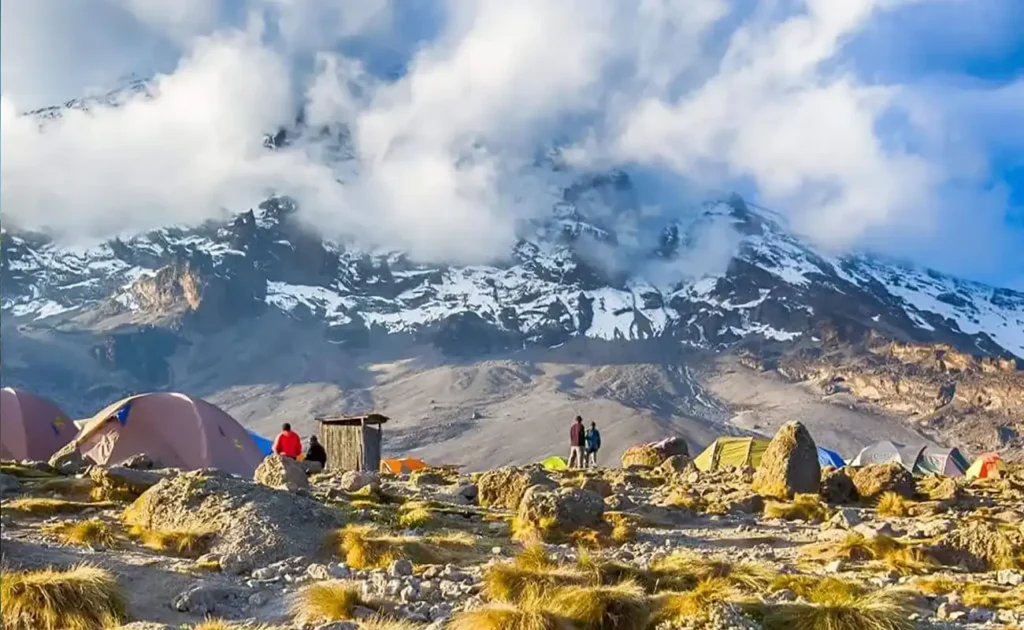Would you believe that Zanzibar, a small island off the coast of East Africa, is home to one of the most aromatic spice farms in the world? Jambo’s Spice Farm is a testament to the rich history and vibrant flavors that define this paradise. Walking through the farm, one can sense the whispers of centuries-old trade routes and the mingling of various cultures through the spices grown here.
At Jambo’s Spice Farm, each spice tells a story of Zanzibar’s past. The farm cultivates a diverse array of spices, including cloves, vanilla, and cardamom, reflecting Zanzibar’s historical significance as the “Spice Island.” Impressively, the farm supports local communities by promoting sustainable agricultural practices. This blend of history and innovation makes Jambo’s Spice Farm a vital part of Zanzibar’s cultural and economic fabric.

Jambo’s Spice Farm: A Journey Through Zanzibar’s Flavors
Jambo’s Spice Farm is a magical place where visitors can learn about the spices grown in Zanzibar. The farm offers a chance to see, touch, and smell the spices that have played a huge role in the island’s history. People can stroll through lush gardens, observing plants like vanilla and cardamom up close. This immersive experience gives a real sense of Zanzibar’s cultural richness. Many visitors love learning the uses and origins of these spices.
The history of spice farming in Zanzibar dates back to ancient times. Traders from all over the world were drawn to the island’s fragrant produce. Today, Jambo’s Spice Farm continues this tradition while embracing sustainable agriculture. They focus on organic methods, ensuring high-quality spices. This practice also helps the local community thrive economically.
An interesting part of the visit is the spice tasting. At the farm, you can try fresh samples of the spices, offering a burst of flavor. Many visitors are amazed by how different fresh spices can taste compared to store-bought ones. This hands-on experience deepens appreciation for these natural ingredients. It’s a delightful way to connect with Zanzibar’s culinary heritage.
For those eager to explore more, guided tours are available. These tours allow visitors to ask questions and engage directly with knowledgeable guides. You’ll learn more about how spices grow and their journey from farm to kitchen. The guides share fascinating stories about Zanzibar’s spice heritage. This creates a deeper connection between visitors and the local culture.
Zanzibar Jambo Spice Farm – Our experience
The Historical Significance of Spice Farming in Zanzibar
Zanzibar has long been known as the “Spice Island.” Its rich soil and tropical climate made it the perfect place for growing spices. During the 19th century, clove plantations flourished on the island, turning Zanzibar into one of the world’s leading clove exporters. Spices like nutmeg and cinnamon added to this fame. These flourishing farms attracted traders from all over, making Zanzibar a hub of commerce.
Spice farming played a crucial role in shaping Zanzibar’s culture and economy. The island became a melting pot of different cultures and traditions as traders brought their customs. According to this post, the history of spice trade in Zanzibar is a testament to its importance in global trade routes. Each spice has its own story, often connected to faraway lands. This cultural blending can still be seen in Zanzibar’s diverse population today.
The profits from spice farming significantly impacted the local economy. The wealth generated helped expand infrastructure and improve living standards. As a result, many parts of Zanzibar experienced growth and development. However, the industry also faced challenges, such as fluctuating prices and competition. Despite obstacles, spice farming remained a vital part of Zanzibar’s identity.
Today, exploring spice farms offers insight into the past. Visitors can learn about traditional farming methods and how spices were cultivated. The farm tours often include demonstrations and tastings. These experiences help people appreciate the hard work behind each spice. In this way, Zanzibar’s spice farming history is kept alive and celebrated.
The Rich Variety of Spices Grown at Jambo’s Spice Farm
Jambo’s Spice Farm is a delight for those who love diverse flavors. Among the myriad of spices, you’ll find cloves, which are known for their strong aroma. Zanzibar is famous for these, often used in foods and teas across the world. Vanilla, with its sweet fragrance, is another popular spice cultivated here. These spices not only enhance taste but also represent Zanzibar’s rich agriculture.
Walking through the farm, you can also spot bold cinnamon sticks. True cinnamon, with its sweet and spicy taste, adds depth to various dishes. Turmeric, vibrant and yellow, is yet another wonder from Jambo’s Spice Farm. It is prized for its distinct flavor and coloring properties. This shows the farm’s dedication to growing high-quality unique spices.
Jambo’s Spice Farm grows nutmeg too, a warm spice that adds a hint of nuttiness to dishes. Locals often use nutmeg in desserts and savory meals. Cardamom, with its herbal notes, is particularly favored in traditional Zanzibar dishes. Here’s a table highlighting some spices and their common uses:
| Spice | Common Use |
|---|---|
| Cloves | Teas, Marinades |
| Cinnamon | Pastries, Oatmeal |
| Nutmeg | Sauces, Desserts |
Exploring the rich variety here means exploring Zanzibar’s exciting flavor palette. The farm prides itself on sustainable practices, ensuring spices are grown organically. This not only preserves the land but also produces healthier spices. Visitors leave Jambo’s Spice Farm with a renewed appreciation for natural ingredients. It’s a journey into the very heart of nature’s wonders.
Sustainable Practices and Their Impact on Local Economy
At Jambo’s Spice Farm, sustainable practices shape not just the land but also the community’s future. The farm emphasizes organic farming techniques, reducing dependency on harmful chemicals. This mindful approach ensures that the soil remains rich and productive for many years. By refraining from using artificial fertilizers, the natural balance of the ecosystem is maintained. Consequently, this leads to healthier, more bountiful spice harvests.
Implementing sustainable methods has positively influenced local economic conditions. With healthier soil, farmers enjoy better yields of high-quality spices. This boosts their incomes and enhances quality of life for their families. The community benefits from increased job opportunities at the farm. More importantly, these efforts ensure the longevity of spice farming in Zanzibar.
Apart from farming methods, Jambo’s Spice Farm focuses on minimizing waste. They encourage reusing and recycling wherever possible. By composting organic waste, they create natural fertilizers that enrich the soil. Here’s a list of simple sustainable practices followed on the farm:
- Organic farming techniques
- Waste reduction and composting
- Promoting biodiversity
The farm also supports educational programs that teach the community about sustainable agriculture. Workshops and training sessions equip local farmers with essential skills. Through these initiatives, knowledge is shared, and everyone can contribute to a healthy environment. Many young people are now more interested in agriculture. It’s inspiring to see a new generation engaged in sustainable farming.
Furthermore, Jambo’s Spice Farm’s commitment to sustainability draws tourists interested in eco-friendly practices. Visitors learn about organic farming, inspiring them to adopt greener habits. This not only increases tourism but also promotes global awareness about sustainable agriculture. The farm has become a role model for other agricultural communities. Sustainable practices, as shown, can cultivate both growth and respect for nature.
Experiential Tours: Engaging the Senses at Jambo’s Spice Farm
Experiential tours at Jambo’s Spice Farm offer an immersive dive into the world of spices. Visitors are guided through lush greenery filled with aromatic plants. The experience is designed to engage all five senses, making it truly unforgettable. Guides share fascinating stories about each spice. This adds a layer of richness to the tour.
One highlight is the spice tasting sessions. Visitors can sample fresh spices, enhancing their understanding of the various flavors. Tasting fresh nutmeg, cardamom, and cinnamon is an eye-opening experience. You also get to see how these spices are used in traditional Zanzibar cooking. This hands-on approach invites visitors to connect deeply with the island’s culture.
The tours also include interactive demonstrations. You might witness the drying of cloves or the grinding of cinnamon. These activities provide insights into the traditional farming methods still used today. Here is a table showcasing typical tour activities:
| Activity | Description |
|---|---|
| Spice Tasting | Sampling fresh spices |
| Plant Identification | Learning about different spice plants |
| Interactive Demonstrations | Hands-on farming activities |
The farm is also home to vibrant gardens that delight the eyes with bursts of color. Walking through these areas, visitors can touch and feel the plants while smelling their wonderful scents. The sensory experience is made complete with the sounds of nature, like birds chirping and leaves rustling. This immersive environment makes the tour both educational and relaxing.
For many, the highlight is meeting the local farmers. These knowledgeable individuals share their expertise and personal stories. Interacting with the farmers gives a sense of the community’s hard work and dedication. This face-to-face engagement creates a real connection between visitors and the farm. It serves as a beautiful reminder of the human element in agriculture.
Preserving Tradition While Embracing Innovation
At Jambo’s Spice Farm, preserving tradition is as important as embracing innovation. The farm stays true to time-honored methods that have been passed down through generations. Farmers continue to use traditional techniques for growing and harvesting spices. This helps maintain the authentic quality and flavor of the spices. At the same time, the farm looks toward the future with exciting new methods.
Innovation plays a key role in making farming more efficient and sustainable. Jambo’s Spice Farm uses modern technology to monitor soil health and climate conditions. These advancements help optimize growing practices and improve yields. By combining old and new methods, the farm maximizes productivity while minimizing its environmental impact. This blend ensures a steady supply of high-quality spices.
Education is also an important part of the farm’s approach. Workshops and training sessions update farmers on the latest agricultural techniques. Here is a list of some key innovations introduced:
- Use of solar panels for energy
- Water-efficient irrigation systems
- Data-driven soil analysis tools
Community involvement strengthens the connection between tradition and innovation. Local farmers and artisans work hand in hand to share knowledge and promote sustainability. This collaboration enriches the community and fosters innovation. It creates a supportive environment where everyone benefits. The farm becomes a living example of harmony between past and future.
The response from visitors is overwhelmingly positive. They appreciate seeing how Jambo’s Spice Farm respects its roots while pushing forward with new ideas. This unique combination attracts tourists interested in authentic and forward-thinking agricultural practices. Visitors leave the farm inspired by this balance. It exemplifies how tradition and innovation can coexist fruitfully.
Key Takeaways
- Jambo’s Spice Farm offers a hands-on spice experience in Zanzibar.
- Sensory tours engage all your senses with diverse spices.
- The farm blends tradition with innovative farming techniques.
- Sustainable practices boost both environment and local economy.
- Visitors leave with a deeper appreciation for Zanzibar’s spice heritage.




